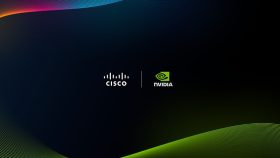Exium Debuts "Clean" 5G for Private Wireless

An intriguing startup named Exium has released what it terms a Secure 5G network-as-a-service (NaaS) that follows U.S. “clean network” standards. The news is an interesting take on the issues of network security in private 5G wireless deployments.
Exium, founded in 2019 by wireless telecommunications expert Farooq Khan (ex-Phazr, ex-JMA Wireless) offers what it calls a cybersecurity mesh comprising a 5G network based on 75 so-called Cybernodes plus “hundreds” of points of presence worldwide. The nodes deploy a security stack based on hardware root-of-trust and use zero trust network access (ZTNA) to guard traffic on private 5G networks. Pricing is “pay as you go” — $5 per user per month.
CEO Khan describes the design of Exium’s network in a recent blog post:
Exium’s 5G network service is built on an open, programmable, reliable, and software-driven Intelligent Cybersecurity Mesh™ that is obscured from the public internet yet connects anything, anywhere with end-to-end encryption to mitigate a variety of threats.
A Startup Enigma
Exium’s service raises many questions, and so does the company itself. Founded just two years ago, it seems to have few employees and no announced funding. How could this startup create a massive 5G NaaS in so little time?
The answer may lie with CEO Farooq Khan. An expert in 5G and mobile technology, he was founder and CEO of Phazr, which specialized in creating 5G products, including a fully virtualized radio access network (RAN) for carrier use. In 2018, Phazr was acquired by JMA Wireless, a mobile technology company founded in 2012 and based in Syracuse, N.Y.
Clearly, Farooq Khan had the expertise and connections to found Exium. What those connections are, who Exium's suppliers are, and how it is funded will be interesting to learn.
5G Private and Protected
As 5G emerges and is adopted for enterprise use, Futuriom sees many opportunities for a plethora of services akin to what Exium and its would-be competitors offer.
Indeed, a trend toward secured, private 5G services for enterprise use is gaining momentum. Cato Networks, for instance, offers its own network as a Secure Access Service Edge (SASE) or Secure Edge solution that supports 5G. Exium also resonates with Microsoft’s acquisition of Affirmed Networks last year, which aimed to help Azure support cloud-based management and orchestration of 5G providers. Recall too that AWS (GOOGL) had a deal with AT&T (T) to combine the networks of both in support of 5G.
A Politically Charged Mission
Exium’s message of secure private 5G service has a special edge: The company literature refers to the “Clean Network” initiative launched by U.S. Secretary of State Michael R. Pompeo in 2019. It claims that every element in the network is supplied by U.S. vendors, signalling Exium’s alliance with all who view Chinese 5G suppliers Huawei and ZTE as enemies of the free world.
In his latest blog, Exium CEO Khan stated:
This [Clean Network] initiative encourages a global digital alliance whereby member countries accept digital trust standards and abide by them, while the non-trustworthy telecommunication providers are excluded from this list. This is done to safeguard illegal intrusions from malicious actors such as the Chinese Communist Party and its surveillance and data collection tools including Huawei and ZTE, which are their most prominent network equipment developers.
Exium and the Future of 5G Cybersecurity
The future of Exium will be interesting to watch. And this first announcement highlights more than the move to private wireless networking as 5G emerges. It also showcases the clean network movement, which sees a direct link between nations that subscribe to its tenets of freedom-loving democracy and the technical safety and security of 5G networking.
The argument that being clean of objectionable vendors will drive 5G dominance for Exium and other U.S. companies is ideological, not technical. Unlike the European Union’s 5G Toolbox of risk mitigation best practices (which Exium also supports), the clean network movement does not emphasize established engineering standards and best practices but assumes that a “clean” network will be an optimally functional one.
So Exium has put itself not just in a hot market segment but a contentious political position as well. Still, given the recent SolarWinds nation-state attack, enterprises are likely to welcome any efforts at cybersecurity reform. It’s certainly worth a try.























